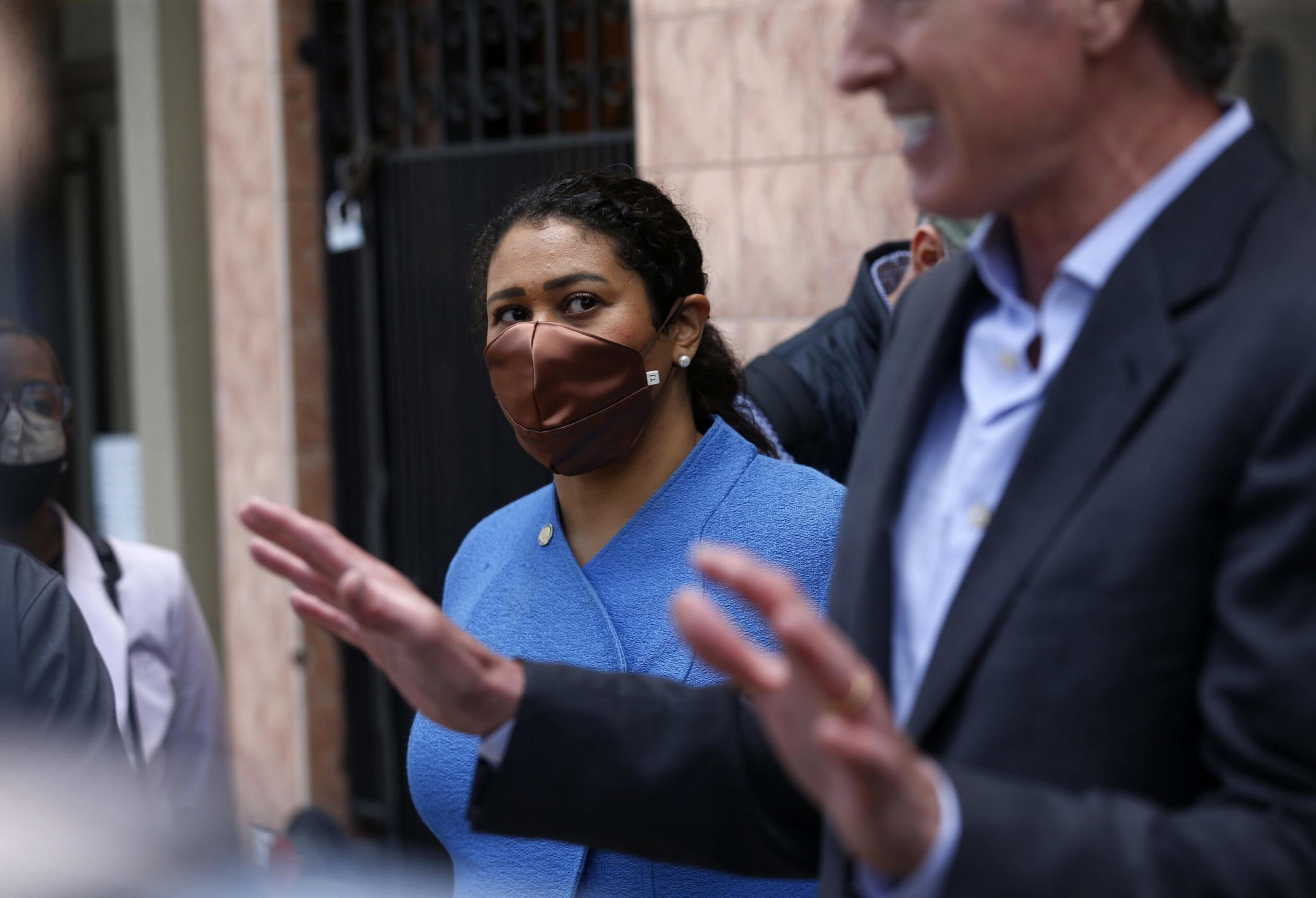San Francisco is exploring ways to boost masking and vaccine mandates for people outside of its own workforce, said Mayor London Breed.
At a ceremony to sign the city’s budget, Breed touted San Francisco’s high vaccination rate but cautioned that the city can’t get back to normal until more residents are protected from emerging strains of COVID-19.
“Yes, we are looking at mandatory vaccines for people who are not necessarily city employees,” said Breed on July 29. “We do not make these decisions lightly—it is very difficult to try and move people in one direction when we just felt like we came out of this pandemic in a way we could celebrate.”
San Francisco has among the highest vaccination rates (opens in new tab) in the country, with 76% of all residents having received at least one dose. Unvaccinated residents include children under age 12, who aren’t eligible to receive the vaccine, and people who may have otherwise opted out of the shot.
Public health officials have warned that the Delta variant, which now accounts for a majority of positive COVID-19 cases in the U.S., could pose a threat despite San Francisco’s high vaccination rates. At a recent meeting, officials with the Department of Public Health (DPH) said that if local vaccination rates don’t increase, the city could see an uptick in cases and hospitalizations peaking in November.
San Francisco announced plans (opens in new tab) to require vaccines for its workforce of approximately 37,000 city employees in late June. Last week, it also joined other Bay Area counties in urging private employers (opens in new tab) to require vaccines for their own employees.
A number of large private employers in San Francisco have announced vaccine mandates for employees returning to work, including DoorDash, the YMCA of San Francisco, Facebook, Google, Lyft, Uber, Twilio, and Twitter. A number of independent venues, such as The Independent, Rickshaw Stop, Bottom of the Hill, and the Black Cat, have introduced similar requirements.
Breed didn’t elaborate on who the expanded mandates could apply to, but said that she is working with the City Attorney’s Office to devise the new rules.
“As soon as we have the details of what we are able to do, we will do them,” said Breed on Thursday.
On Thursday, Breed signed the city’s budget for the upcoming two-year cycle.
That budget allocates $13.1 billion for the fiscal year 2022 and $12.8 billion for fiscal 2023, and includes more than $1 billion in homelessness spending, $525 million in various initiatives to support the economic recovery, $378 million in the city’s continuing emergency response and $300 million in behavioral health treatment.
“Every single dollar has to make a difference,” said Breed.
